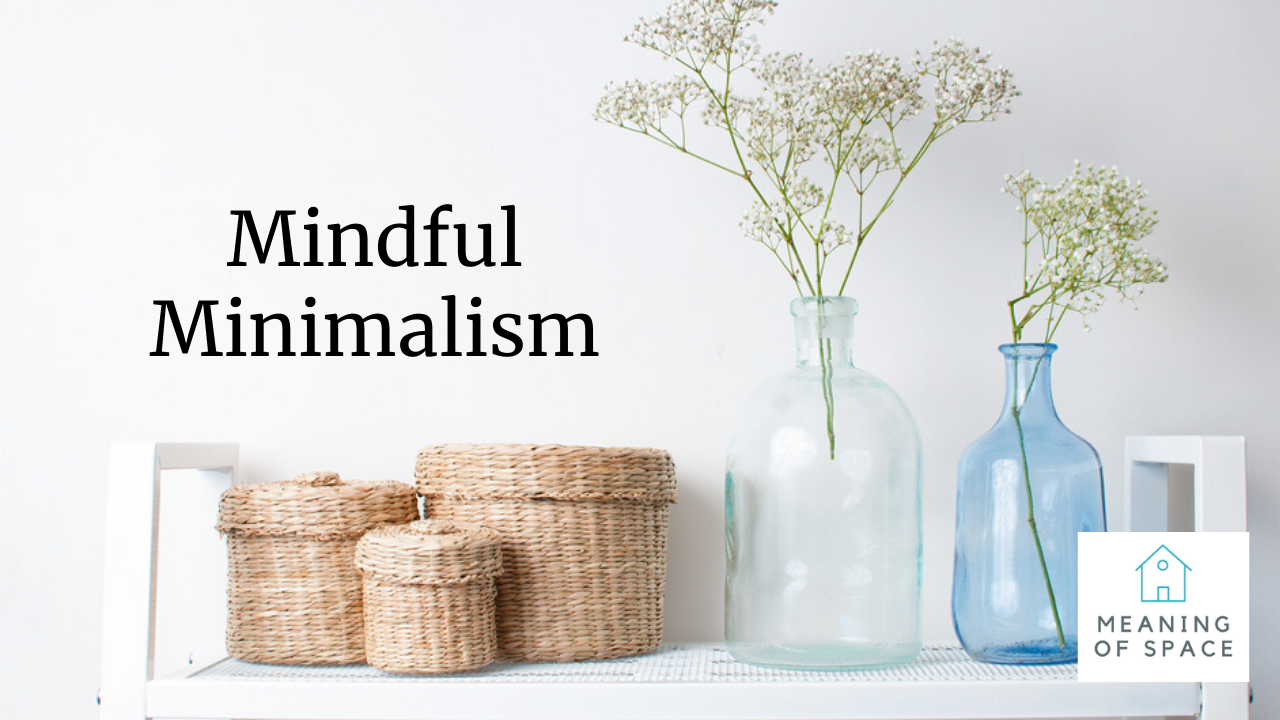Mindful Minimalism
Jan 12, 2020
"What Minimalism is really all about is reassessment of your priorities so that you can strip away the excess stuff—the possessions and ideas and relationships and activities—that don’t bring value to your life."
- Colin Wright
Mindful Minimalism
The term minimalism appeared in the 1950's when minimalist art and design became popular. Today, a minimalist lifestyle promotes simplicity, less consumerism and conscious awareness of what we choose to think about, surround ourselves with and what consumes our time and energy.
Minimalism is a way of being, but not everyone feels comfortable getting rid of their stuff and changing their ways. In fact, there are multiple psychological facets to the relationship between self and stuff.
Our physical word is a reflection of what's going on inside of us. Our choices and ways of being in our spaces come from our upbringings, our experiences, societal and cultural norms and trends. This is why dealing with space (clutter clearing, eliminating, organizing and decorating) in 'one specific way' is not only potentially harmful, but it is very key to our overall well-being.
The past 20 years have given the western world insight into how our homes and environments influence our wealth, relationships and health. But, most of the solutions to spaces are prescriptive–imposing rules as solutions.
Feng Shui (China), Vaastu Shastra (India), even tidying up (Japan) have culturally designated rules. These rules applied to western environments, in many cases, don't totally fit our western lifestyles. However, we are looking for answers.
There is no question that we are 'over-stuffed' in the western world. We have access to anything we want. Now we're grappling with too much stuff and confusion about who we are and what we stand for in our societies.
Minimalism is a way of looking into your life and asking yourself–what do I believe, what do I value, what do I stand for? It doesn't mean stripping everything out of your space and sitting on one chair with one piece of art. The act of doing that would be detrimental to some people's mental health.
In comes the Meaning of Space. Our goal is to provide education and tools for you to create a space that supports who you are at the soul level. Many creative people love to have things around to inspire their art and work. Many nurturing people love to have big over-stuffed chairs and collections of things. Many busy people like to have simplicity so they can easily travel without worrying about home.
Your space is YOUR space. While minimalism is a movement in our current world, it's recommended to tread mindfully and align yourself with your stuff in a way that nurtures and supports you. In addition, as you live your life, you go through times when you'll collect things and you'll go through times when you eliminate things. It's a natural way of being as an organic human being. Be mindful of your needs.

